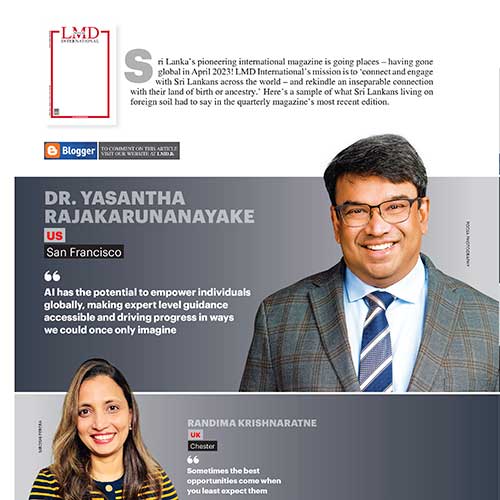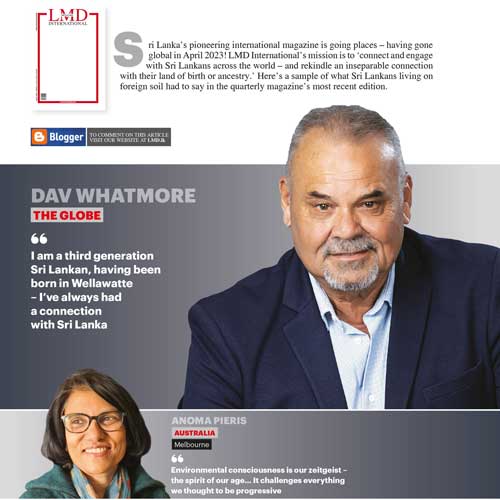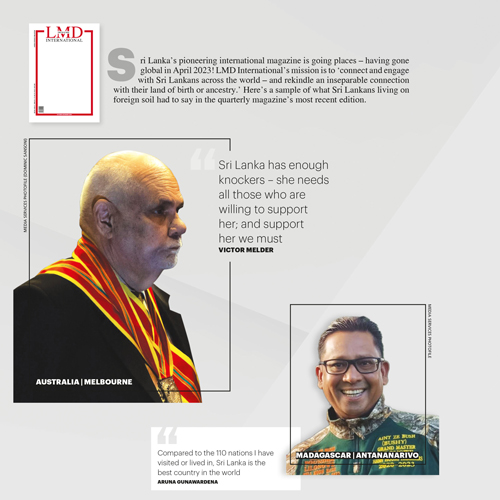REGAINING SRI LANKA
Aruna Abeygoonesekera
Sri Lanka needs to moot a citizen centric style of governance
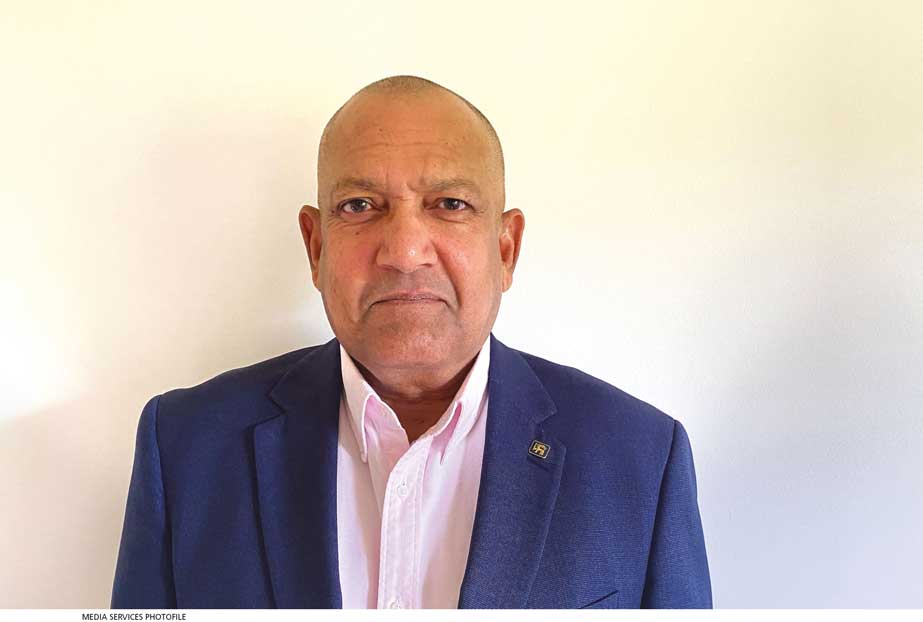
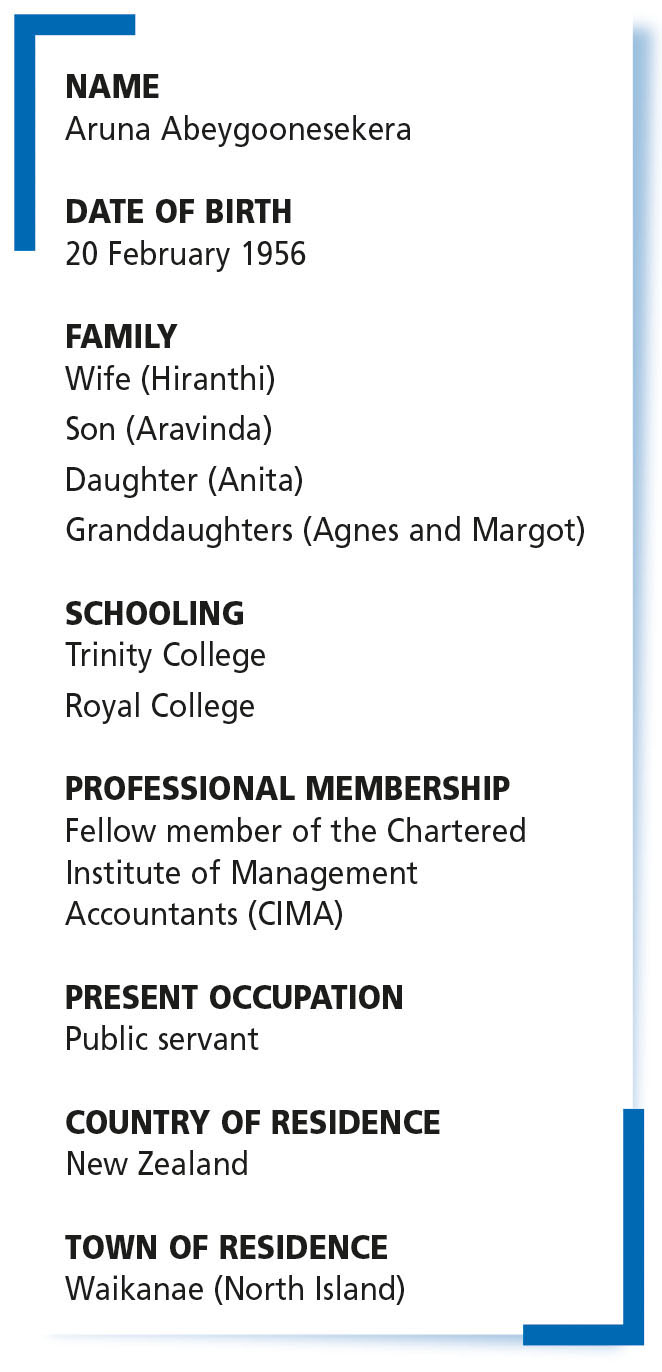 Q: As far as perceptions go, do you think Sri Lanka is capable of regaining its composure in the aftermath of the COVID-19 pandemic?
Q: As far as perceptions go, do you think Sri Lanka is capable of regaining its composure in the aftermath of the COVID-19 pandemic?
A: Sri Lanka as a country and Sri Lankans as its people have always been perceived as having tenacity and resilience, and being able to cope with and overcome adversity.
Q: How do you perceive Sri Lanka today?
A: From the information I obtain from individuals living in the island, as well as by reading news items from official publications and opinion pieces, I believe Sri Lanka is attempting to withstand many economic and social rigours – as is the rest of the world – in recent times.
Q: And how do compatriots in your country of domicile view Sri Lanka?
A: New Zealanders generally view Sri Lanka as a friend and ally especially since it’s also a member of the Commonwealth. The recent opening of the New Zealand mission in Colombo and planned sporting fixtures between the two countries have reinforced these views.
The country’s management of the pandemic and its recent opening up to tourists have also strengthened its profile.
New Zealand has a high level of transparency in how it governs the country. However, Sri Lanka has yet to gain the confidence of nations such as New Zealand in that sphere.
Q: Likewise, how do other Sri Lankans living in New Zealand view Sri Lanka?
A: There is a mix of views shared by Sri Lankans domiciled in New Zealand. It depends very much on which sources they source their information from – and how they read, digest and perceive it.
Those who view Sri Lanka in a positive light compared to those who don’t are divided equally. Sri Lankans depend heavily on social media and therefore, it’s hard to judge people’s opinions as they are based on unverified sources.
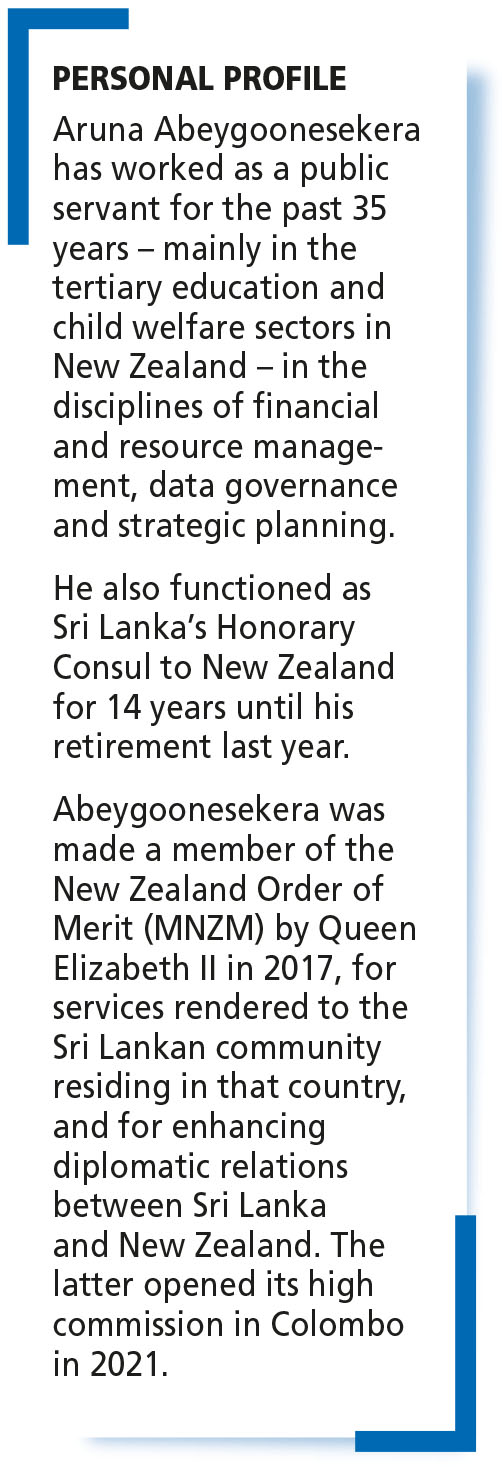 Q: What were your impressions of Sri Lanka on your last visit – and how much has it changed from the past, in your assessment?
Q: What were your impressions of Sri Lanka on your last visit – and how much has it changed from the past, in your assessment?
A: My last trip to Sri Lanka was in early 2020 and I spent two weeks there. The infrastructure is well maintained overall, particularly in the major cities.
Q: From afar, how do you perceive news about Sri Lanka?
A: I always read the official news channels first, and then others – including items on social media to get a broader (rather than an accurate) picture of the news. That way, I can formulate my own opinion on what’s been reported.
You will be disappointed if you go looking for the truth in news items; this is especially so when you hear or read about it from far away as they’re always a reflection of peoples’ perceptions.
Q:How do you view the brain drain – and why is there still no reversal of it, in your opinion?
A: The perception or reality of the value and advantages arising from a qualification or experience obtained overseas has prevailed over the years. I believe that will continue for some time... until people regain more confidence in Sri Lanka’s education system and the qualifications arising from it.
I also feel it’s the better quality of life – as perceived by potential emigrants – that has resulted in the brain drain.
 Q: So what should Sri Lanka focus on most in the coming decade – especially in the context of governance?
Q: So what should Sri Lanka focus on most in the coming decade – especially in the context of governance?
A: I think Sri Lanka needs to coordinate its efforts to consolidate the economic, social and cultural challenges – within and outside the country – with the government taking steps to regain the confidence of its people.
It needs to move to a more citizen centric and inclusive style of governance that embeds a civic minded public service that delivers to its people.
Q:And what are your hopes for the country in the next decade or so?
A: I hope that Sri Lanka over the next 10 years will plan and forge a path of development that will put the country back on a strong economic footing to face future challenges.
– LMD



